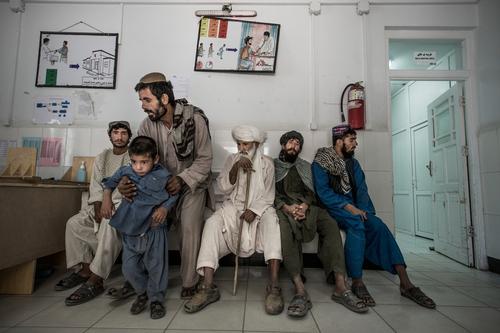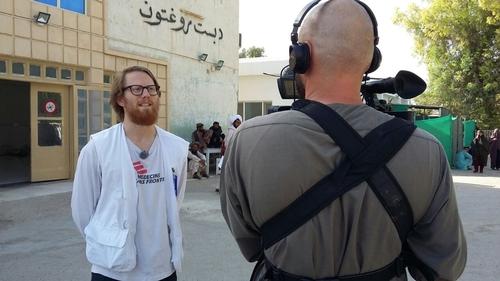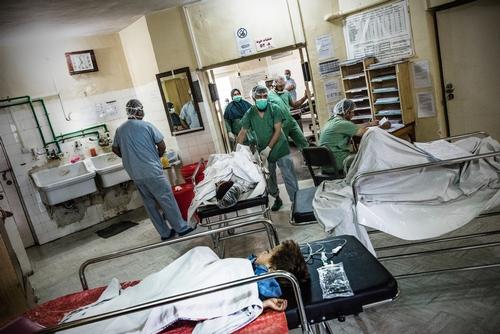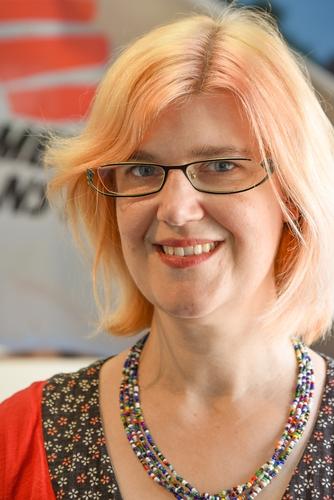A few days ago, Dr Zanidin Amin sent his seven children and the rest of his family back to their hometown of Marjah, a district outside Lashkar Gah, the capital of Helmand province in southern Afghanistan. Their house in the capital had been hit by bullets during heavy fighting between Afghan government forces and armed opposition groups. Dr Amin works in the paediatric ward of the 300-bed Boost hospital in Lashkar Gah, where MSF has been supporting the Afghan Ministry of Public Health since 2009. In early October, fighting in the Lashkar Gah area intensified and MSF teams in the hospital treated 34 wounded patients. Many people fled the city, including a large number of patients who left the hospital because they feared they would be trapped as fighting reached the city itself.
"I was in the paediatric intensive care unit and suddenly saw many people starting to leave leaving from all the hospital wards," recalls Dr Amin. "On a single day we went from almost 300 patients to around 100. I would say that at least half of those who left from the paediatric ward still needed critical care, including some who were receiving oxygen. Although it was against medical advice, people left because they were scared." Figures show that the number of daily emergency cases presenting at the hospital has dropped by around 30 per cent on average, going from 33 by the beginning of October to 23 three weeks later.
"We were in Lashkar Gah for the wedding of my husband's brother, but then my baby became sick so we brought him to the hospital," explained the mother of Bibi, who is just a few months old. "My husband says the city may be attacked and it is not safe, so we will leave as soon as possible."
People come from all over conflict-effected Helmand province to be treated at Boost hospital and the facility is the only public hospital in Lashkar Gah that provides specialised paediatric medical services.
"Some private clinics are available in the city, but they are expensive so people usually prefer to come to our hospital because it is free," Dr Amin explains. "Besides, during the heavy fighting many clinics and health centres closed and their staff left," he added.
While the situation is somewhat calmer in Lashkar Gah since mid-October, fighting continues in several parts of Helmand province and makes it very difficult for patients to reach Boost hospital. "Many patients, especially those in far-away districts, have difficulty reaching us because many roads are closed due to fighting or because of the presence of improvised explosives. Journeys that in normal conditions take half an hour can now take three, four and even six hours," says Dr Amin.
"It took us seven hours to come here by car, three times longer than usual", says the mother of a young patient, Shakuba. "The fighting forced us to stop many times on the way although we were in a hurry to come to the hospital with our sick child. We could not wait for more passengers, so we had to rent the whole car and that cost us 10,000 Afghani (US$150). We had to borrow that money and it will take us a long time to pay that back."
During the days of heaviest fighting, Dr Amin stayed at the hospital day and night. Now he can go home when his shift is over, but he sleeps alone in the house in Lashkar Gah, which used to be home for 30 members of his family. "I left my clinic in Marjah two years ago because clashes were increasing there and I moved with my whole family to Lashkar Gah. So it's not the first time we have had to run away from the war. Sometimes I want to leave Lashkar Gah and go with my family, but my job is here and I want to help."
MSF started working in Afghanistan in 1980. In our projects in Afghanistan, both national and international staff work together to ensure the best quality of treatment. Since 2009 MSF runs various departments of Boost hospital in Lashkar Gah in partnership with the Ministry of Public Health. In 2015, almost 80,000 outpatient consultations were performed there by MSF teams, while more than 33,000 patients were hospitalised and assistance was given in more than 12,000 deliveries. MSF also supports the local authorities in Ahmad Shah Baba hospital in eastern Kabul, Dasht-e-Barchi maternity in western Kabul. In Khost, in the east of the country, MSF operates a maternity hospital. MSF is about to open a multidrug-resistant tuberculosis diagnosis and treatment facility in Kandahar. MSF relies only on private funding for its work in Afghanistan and does not accept money from any government.







